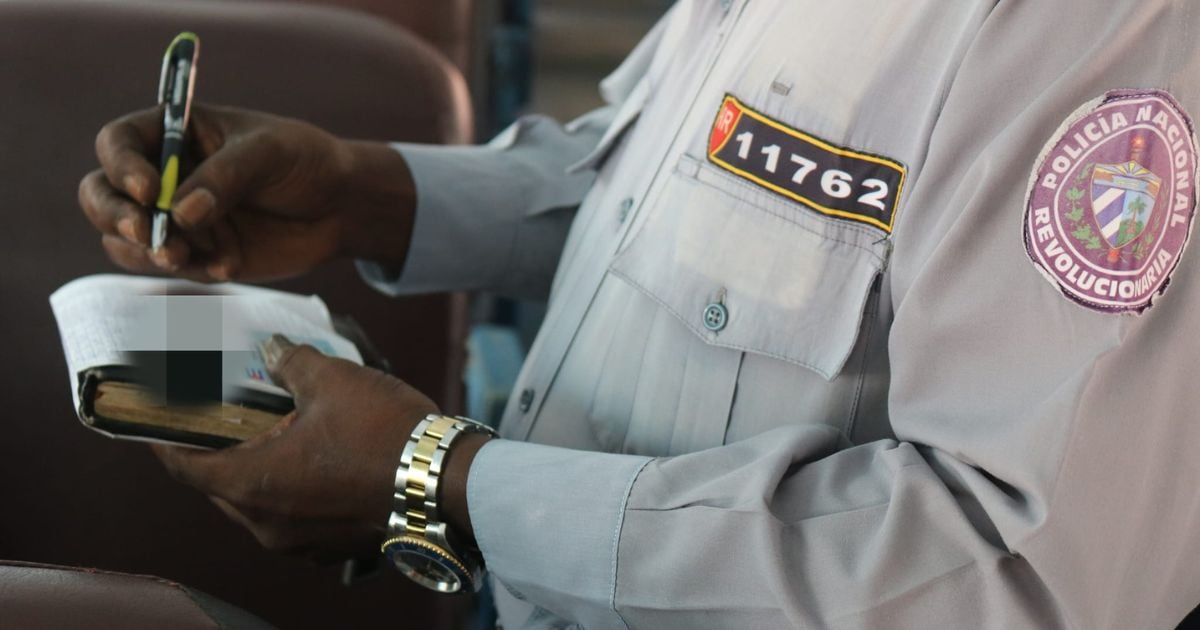
Related videos:
As part of the National Exercise for Prevention and Combat against Crime, Corruption, Illegality, and Social Indiscipline, which begins this Monday in Cuba, the regime has promised to impose exemplary trials against those who commit serious offenses, especially those occurring within state institutions.
During the official launch of the operation, from the headquarters of the Central Committee of the Communist Party, the ruler Miguel Díaz-Canel stated that cases of violence, vandalism, and economic damage must be addressed "with total severity" and requested that judicial responses be "decisive," reported the official newspaper Granma.
Among the crimes cited by the leader are the theft of electrical wires from irrigation machines, stone-throwing at shops and buses, and acts of corruption, all of which —he said— must be subject to criminal proceedings that serve as a deterrent.
Although no figures or details were provided regarding the cases to be prosecuted, the authorities made it clear that they seek to convey a message of discipline and social control, using the judicial system as a means of example.
The exercise will run until March 29 and mobilizes structures from the Ministry of the Interior, the Government, the Party, mass organizations, and official media.
Julio César García Rodríguez, an official of the Central Committee, explained that the main objective is to strengthen the role of the State and its institutions in tackling crimes, illegal activities, and behaviors that are "harmful" to internal order.
In addition to legal actions, actions will be taken such as reviewing contracts between state enterprises and non-state management forms, operations against drugs, urban inspections, and controls on excessive pricing.
However, the emphasis on punitive actions and the judicialization of social conflicts reinforces the hardening stance that authorities have adopted in the current context of economic crisis and growing public discontent.
In this context, the Government of Havana has shared several posts on social media boasting about these “decisive” actions; however, at the same time that the regime showcases the strengthening of its fight against crime, it also conveys an implicit message: the rise in crime rates and the increasing social conflict in Cuba.
In the Playa municipality, the authorities have launched – according to the source – a sustained operation to combat drug trafficking and consumption, as part of a comprehensive security strategy promoted by the government.
The objective, as reported on social media, is to strengthen control in key areas of the territory and ensure greater protection for citizens. Under the principle of "zero tolerance," police operations, checks at strategic points, and intelligence efforts have been intensified with the aim of dismantling criminal networks dedicated to the illegal drug trade.
In the early months of 2025, violence and insecurity in Cuba have shown a worrying escalation, evident in numerous criminal incidents that have sparked social alarm.
One of the most recent cases occurred in Moa, Holguín, where a young man was arrested after snatching a cellphone from a girl in broad daylight, highlighting the increasing vulnerability of minors to violent thefts.
Days earlier, in the province of Matanzas, a citizen was arrested for carrying an unregistered shotgun in his vehicle, during a local police operation. This incident, along with other similar cases, heightened concerns about the rising circulation of illegal firearms and prompted the regime to approve a new decree to tighten control over weapons and ammunition.
In parallel, the climate of insecurity was reflected in the capital. A violent brawl in La Cuevita, Havana broke out following an alleged scam in the well-known informal market. The incident was recorded and shared on social media, where citizens denounced the social deterioration and the lack of effective police response to these outbreaks of daily violence.
This pattern is not new. Back in January, a group of criminals broke into an agromarket in Boyeros, where seven individuals overpowered the custodian and stole food products. The police managed to capture the culprits, but the incident generated great concern among residents due to the frequency of these robberies, even in urban areas with a state presence.
Frequently Asked Questions about Exemplary Trials and the Current Situation in Cuba
What are exemplary trials in Cuba?
Exemplary trials in Cuba are judicial processes that aim to deter crime through the severity of sentences. These trials not only punish the guilty but also aim to educate the public about the consequences of committing crimes, as they are widely publicized by official media.
What crimes are being addressed in the National Prevention Exercise in Cuba?
The National Prevention Exercise in Cuba addresses crimes such as drug trafficking, corruption, theft of electrical cables, and vandalism. The regime has stressed the need to impose exemplary trials for these offenses, especially those committed within state institutions, in order to strengthen discipline and social control.
What are the consequences of exemplary trials for the accused?
The consequences of exemplary trials for the accused in Cuba can be very severe, including long prison sentences, life imprisonment, and in cases related to drug trafficking, even the death penalty. Additionally, they may face confiscation of assets and the prohibition from practicing certain professions.
How is the state control policy affecting the private economy in Cuba?
The state's control policy in Cuba is adversely affecting the private economy, with measures that include inspections and restrictions on private businesses. The regime seeks to "organize" the relations between the state and non-state sectors, but this approach has been criticized for stifling economic growth and increasing distrust in the government.
Filed under: